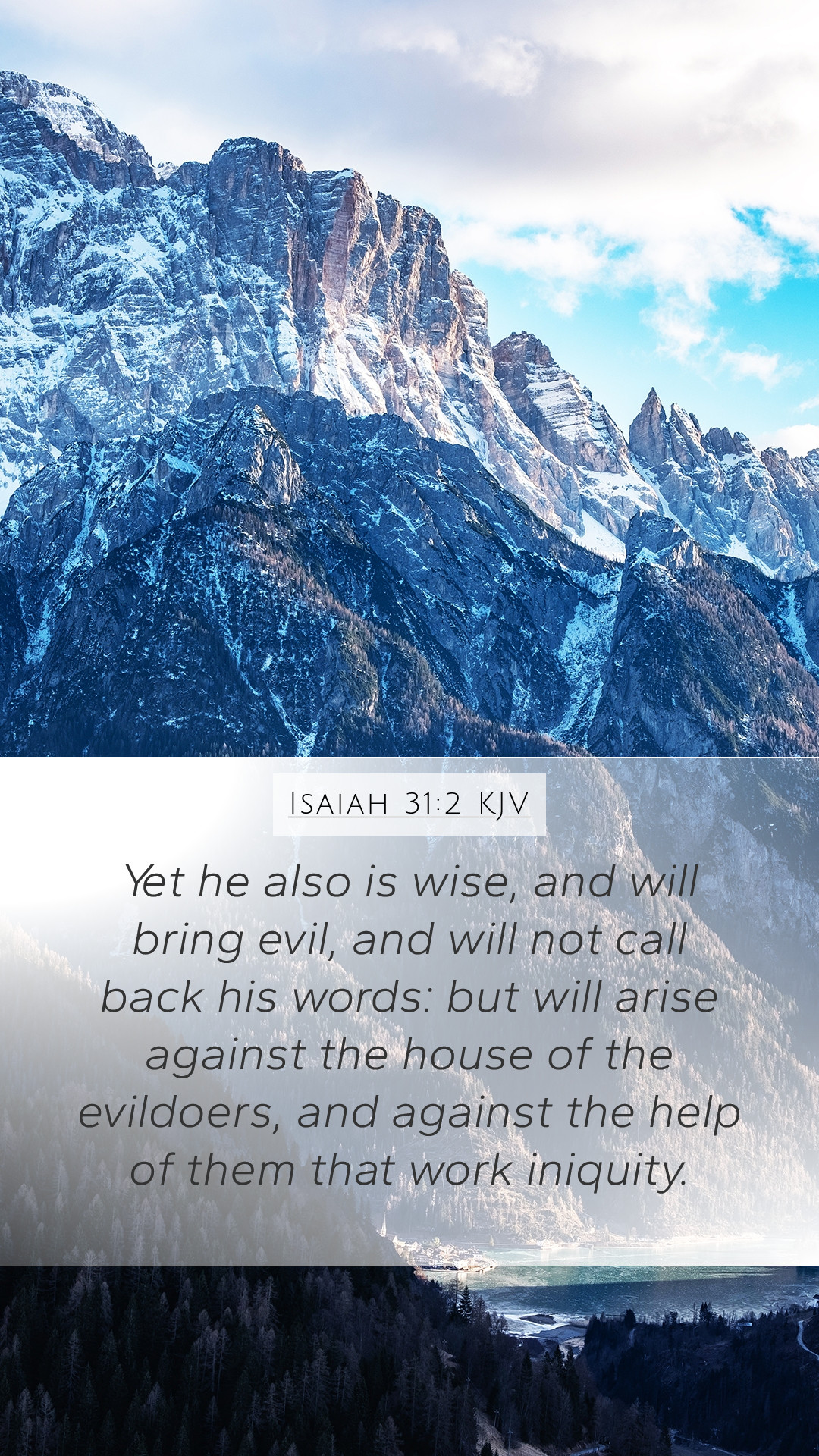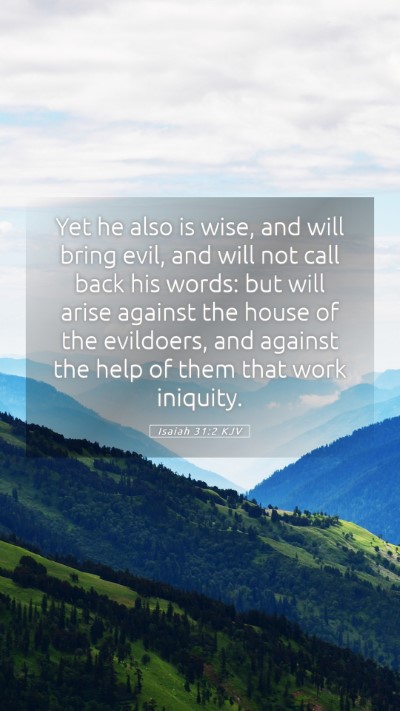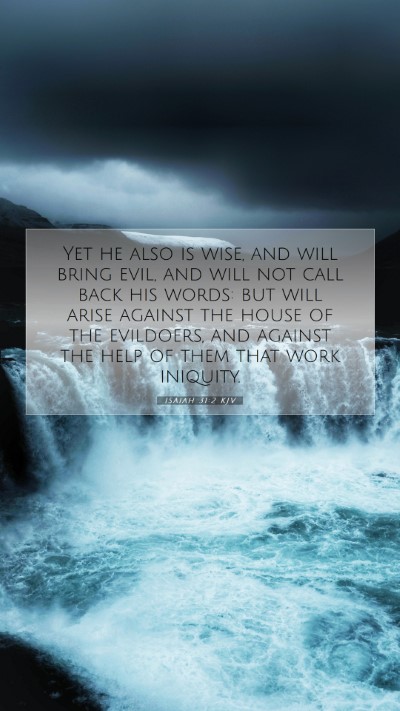Understanding Isaiah 31:2
Isaiah 31:2 states: "Yet he also is wise and will bring evil, and will not call back his words: but will arise against the house of the evildoers, and against the help of them that work iniquity." This verse encapsulates profound insights regarding divine wisdom and the consequences of turning away from God through reliance on human strength.
Contextual Overview
Isaiah delivers a message during a tumultuous period for Israel, as they face threats from powerful civilizations. This chapter highlights the folly of seeking help from Egypt, correlating their trust in human alliances with spiritual decline. The verse assures that while God is wise, He will not tolerate the actions of the wicked.
Bible Verse Commentary
- Matthew Henry: Henry suggests that this verse illustrates God's omniscience and justice. He notes that God's wisdom is unmatched, indicating that while He may allow calamity to befall His people, it is ultimately to correct and guide them back to righteousness.
- Albert Barnes: Barnes emphasizes that the reference to 'evil' here is not unjust suffering but rather divine judgment. He points out that the intent is to reveal that even in judgment, God's wisdom is at work for the redemption of His people.
- Adam Clarke: Clarke acknowledges the dual aspect of God’s character portrayed in this verse. While He is wise in His judgments, He is also unwavering and will act decisively against all forms of evil. Clarke stresses the importance of turning to God rather than relying on political powers.
Biblical Exegesis and Scripture Analysis
This verse, in a broader theological context, serves as a reminder that all power resides with God. It promotes an understanding that human endeavors without divine reliance are ultimately futile. Scholarly examination reveals the emphasis on the wisdom of God juxtaposed with the folly of humanity’s choices.
Thematic Insights
- Wisdom of God: The phrase "he also is wise" underlines God’s supreme understanding of the universe and His purposes.
- Divine Judgment: The verse conveys that God's wisdom also encompasses justice; He will not overlook sin.
- Call to Repentance: Implicit in the warning is a call for Israel to recognize their mistakes and return to faithfulness.
Application of Isaiah 31:2
Incorporating the principles of this verse can profoundly impact daily living. Believers are encouraged to:
- Seek God’s guidance over worldly alliances.
- Trust in His wisdom when faced with adversity.
- Recognize the significance of repentance and returning to God's path.
Additional Insights for Bible Study Groups
Isaiah 31:2 can serve as a foundational text for discussions around:
- Understanding difficult Bible passages and their implications.
- Engaging in an in-depth Bible verse analysis during Bible study lessons.
- Applying biblical principles to modern life challenges.
Related Bible Cross References
- Psalm 37:7: Trust in the Lord and wait patiently for Him.
- Isaiah 30:1-3: A warning against seeking help from Egypt.
- Jeremiah 17:5: Cursed is the man who trusts in man and makes flesh his strength.
Conclusion
Isaiah 31:2 serves as a sobering reminder of the strength found in divine wisdom contrasted with the fragility of human endeavors. It invites believers to cultivate a heart that seeks understanding through prayer, study, and a deepening relationship with God. As we engage with Scripture, we uncover profound truths that shape our faith and guide our decisions.


